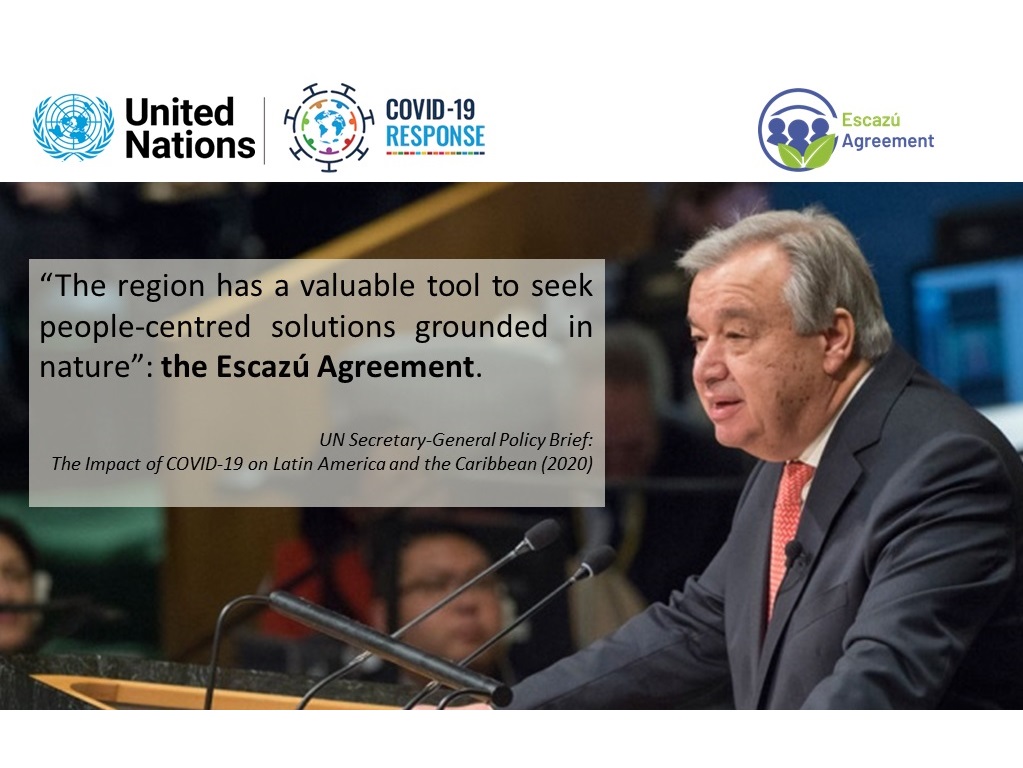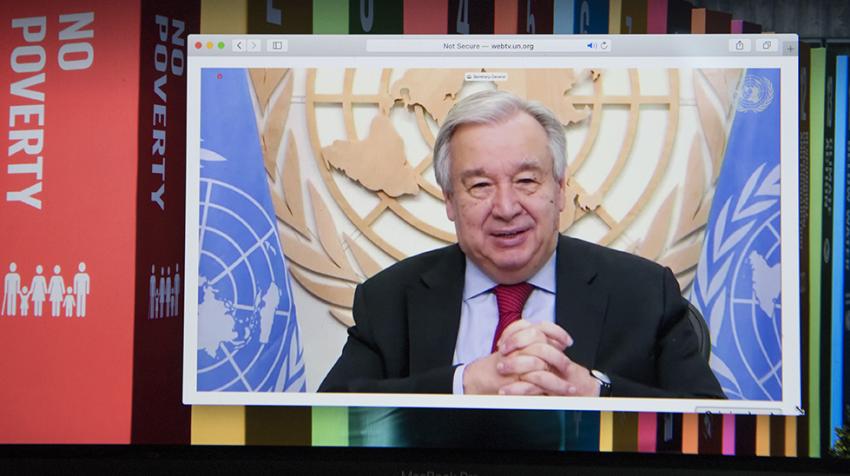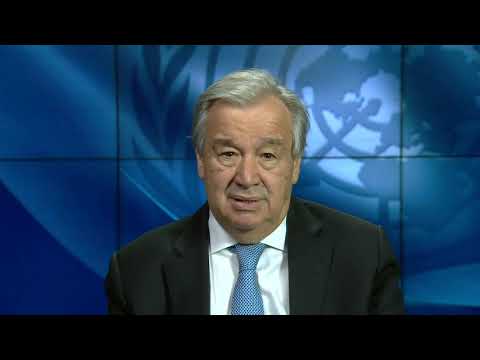United Nations Secretary-General highlights the Escazú Agreement in his policy brief on the impact of COVID-19 on Latin America and the Caribbean
Work area(s)
In his July 2020 brief analyzing the impact of COVID-19 in Latin America and the Caribbean and containing policy options and recommendations to face this situation, the United Nations Secretary-General indicates that the Escazú Agreement is “a valuable tool to seek people-centred solutions grounded in nature.”

In his July 2020 brief analyzing the impact of COVID-19 in Latin America and the Caribbean and containing policy options and recommendations to face this situation, the United Nations Secretary-General indicates that the Escazú Agreement is “a valuable tool to seek people-centred solutions grounded in nature.”
Furthermore, the Secretary-General states that “as the first regional environmental treaty that aims to safeguard the right of present and future generations to a healthy environment, the Escazú Agreement provides tools to address the most pressing environmental concerns. By enhancing access to data, knowledge, and information, and by engaging vulnerable groups, it upholds fundamental values of democratic life and fosters responsive public policies. When the agreement enters into force and is implemented, countries will be better placed to preserve their strategic natural heritage through more inclusive and community-oriented actions.”
In addition, in the context of COVID-19, the UN top official expresses concern for the environmental impacts of the pandemic in the region and on the situation of environmental human rights defenders. In this regard, he underscores that “legislation to protect the environment is being relaxed, and violence against environmental defenders, including those defending indigenous peoples, lands, territories and resources, has increased. As deregulation exposes new territories and communities to deforestation, forced displacements, extraction of natural resources and the destruction of ecological systems, conflicts and violations of human rights become more frequent. In 2018, of the 164 globally recorded killings of environmental defenders, many of whom were indigenous persons, 83 took place in the region.”
“The focus on the pandemic should not result in the environment being neglected”, concludes the Secretary-General.
Related content

Building Back Better Requires Transforming the Development Model of Latin America and the Caribbean
Message by the United Nations' Secretary-General, António Guterres, for the launch of policy brief on the impact of COVID-19 on Latin America and the Caribbean.
Country(ies)
- Latin America and the Caribbean
